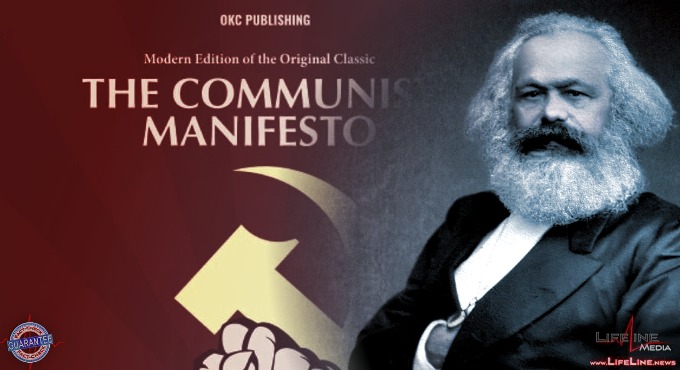Historical Context and Conservative Critique In the Realm of Political Discourse, Few Texts Generate ...

FACT-CHECK GUARANTEE
Political Tilt
& Emotional Tone
The article presents a conservative critique of Marxist ideologies, emphasizing the values of free markets and individual liberties.
Generated using artificial intelligence.
The emotional tone is largely neutral, focusing on analysis and critique rather than expressing strong feelings.
Generated using artificial intelligence.
Updated:
Read
In the realm of political discourse, few texts generate as much debate as Karl Marx and Friedrich Engels’ “Communist Manifesto”, written in 1848.
This manifesto is a monumental yet polarizing work, particularly for those who, from a conservative standpoint, uphold the ideals of free markets and individual freedoms. Its rallying cry for the proletariat to dismantle the bourgeoisie’s grip on production challenges cherished values like private ownership and personal accountability.
Marx and Engels’ critique of capitalism portrays it as an exploitative system destined to collapse under a unified working class. Their assertion that all historical societies are defined by class struggles opposes the very pillars supporting capitalist frameworks. The call to abolish private property confronts foundational beliefs held dear by conservatives, creating a chasm between socialist theory and capitalist practice.
Contemporary Relevance and Ongoing Debates
Despite its contentious nature, there is an undeniable resurgence of interest in socialist concepts, particularly among younger demographics grappling with economic uncertainties. Conservatives often counter this interest by highlighting history’s lessons on socialism’s drawbacks — namely inefficiency and curtailed liberties — outcomes that starkly contrast with Marx’s utopian vision of equality.
As time progresses, interpretations of Marxism have evolved; contemporary adaptations strive to demystify its complex propositions.
However, for conservatives advocating minimal governmental intervention, these ideas frequently appear regressive — a return to policies marked by centralized control that have historically faltered.
Modern debates surrounding capitalism versus socialism are invigorated by technological advancements, thrusting Marx’s theories into mainstream discussions. Concepts such as Universal Basic Income resonate with certain aspects of Marxist ideology while igniting debates among conservatives wary of increased governmental reach.
Critiquing Marxist ideologies remains vital. Historical attempts at communist implementation often birthed authoritarian regimes fraught with suppressed freedoms — a reality reinforcing conservative skepticism towards socialist agendas.
The glaring disparity between Marx’s idealistic aspirations and tangible outcomes demands scrutiny from those committed to safeguarding democratic tenets and personal liberties while addressing societal inequities.
Though rooted in its era, the “Communist Manifesto” continues to fuel conversations about economic models’ influence on personal freedoms and societal frameworks. For conservatives, comprehending this text is essential for navigating current debates around power dynamics and social justice within our ever-shifting global landscape.
While recognizing ongoing quests for equality, conservatives stress learning from history’s missteps while upholding principles of individual liberty and free enterprise systems that have driven innovation and prosperity.
Understanding the manifesto’s historical context alongside its modern implications allows for informed discourse on balancing economic systems with preserving fundamental freedoms — a delicate dance pivotal in shaping future societies where both opportunity and liberty can thrive harmoniously amidst evolving challenges.
In sum, the “Communist Manifesto” remains a critical text for understanding the ideological divides that continue to shape our world today. As discussions about economic models evolve, engaging with its ideas provides valuable insights into how we can address contemporary issues while maintaining core values of freedom and innovation.

Join the discussion!
Be the FIRST to comment on ‘COMMUNIST MANIFESTO: Why Conservatives Fear Its Resurgence Today’